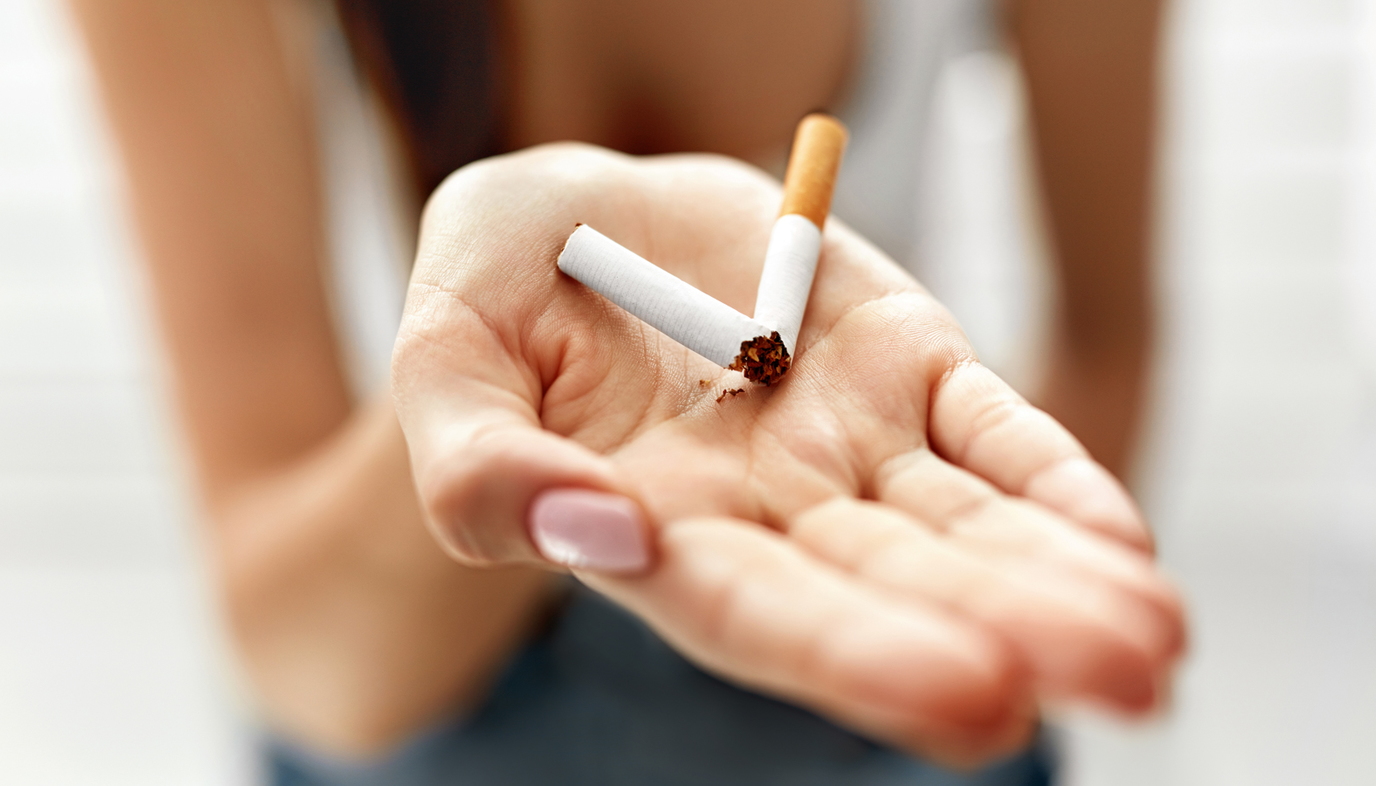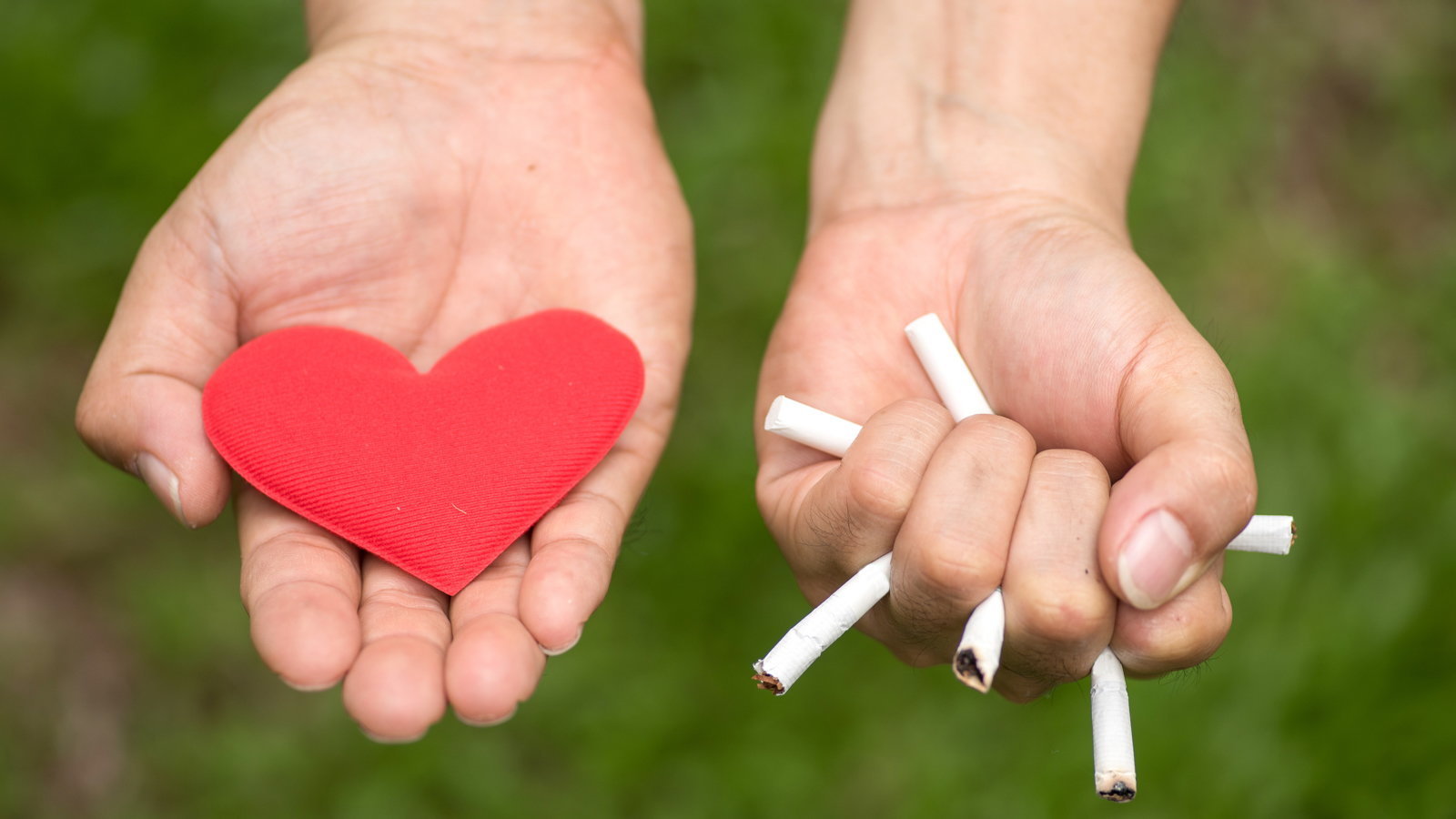
Congratulations! If you’re reading this, it means you’re interested in learning how to quit smoking. I won’t lie to you, it probably won’t be easy, but reading about and understanding the quitting process is your first step.
Quitting Is Personal
Chances are this isn’t the first article you’ve come across that talks about quitting. You’ve probably even heard or read personal stories from others. The most important thing to remember is that everyone is different. While it might be easy for one person to quit and never look back, for others, quitting takes a lot of determination and strength. Do not get discouraged by things you’ve read or heard about. Concentrate on making your own quitting story.
Write a goodbye letter to your cigarette tobacco company. Express your feelings about what smoking has meant to you. Your relationship with cigarettes has probably been a long one, but it is not a good one and it’s time to move on and say goodbye. It is your choice whether or not you actually want to mail it.
So how did you get here? Somewhere, at some point, you were introduced to cigarettes. You probably thought, like so many others, that there is no way you’re going to get addicted. You may have even turned your back on smoking, only to find yourself lighting up again. Even though some tobacco companies don’t want you to believe it, the truth is, cigarettes, especially nicotine, are addicting.

So What Happens When You Light Up?
Shortly after your first inhale, nicotine and other components of cigarettes travel to the brain. You almost immediately experience what some would describe as a ‘rush’. This is caused by the nicotine stimulating the adrenal glands. The adrenal glands are responsible for secreting epinephrine or adrenaline. Your blood pressure, respirations and heart rate begin to increase. Nicotine also helps the brain release dopamine. Dopamine is the chemical in your body responsible for pleasure sensations.
When the cigarette habit first starts, you may find that you’re a ‘light smoker.’ A pack of cigarettes can last several days. After repeated nicotine exposure, a tolerance level develops and requires more and more exposure to experience the same feelings. At this point, your body is physically dependent on nicotine.
Research indicates that a nicotine addiction is right up there with other powerful addictions such as heroin and cocaine. According to the American Cancer Society, nicotine that is inhaled from a cigarette reaches the brain faster then drugs that enter the body intravenously!
Persisting in Quitting Smoking
Quitting smoking is not hard, it is "staying quit" that is the difficult part. This is why you need a plan. You already understand that you’re dealing with a highly addictive substance that your body is dependent on, and you also have to include in your plans that you’re emotionally addicted. Smoking has probably been a big part of your life for some time now.
What is the first thing you think of: When you wake in the morning? After you eat? When you’re on the computer? Drinking coffee? Socializing with friends? Talking on the phone? Driving in your car? Watching TV? Before you go to bed?

Cigarettes have probably been like a best friend to you: always there when you need them. They’ve made you feel better when you’re overly stressed or depressed. To be successful at quitting, for good, you’re going to need to find a new friend, a new healthy way to deal with stressful events or boredom. This all requires a plan.
First you need to figure out which way you think you want to try. Some people try to cut back and others stop altogether or go ‘cold turkey.’ People have been able to quit both ways, but giving up altogether keeps the temptations to smoke slightly less because the cigarettes are not available.
Look at your calendar and pick a quit date. This will be the first day you say goodbye to cigarettes. Don’t pick a day that is surrounded by stress. Mark the date and make it special. Use colorful ink or stickers. This is a big day for you!
Make a list of all the benefits of not smoking. This will come in handy on your big quit day and the days to follow when cravings hit. You can think of your own to add, but just to get you started: your skin, hair, breath and clothes will no longer smell of foul cigarettes. The money you spend on cigarettes will stay in your pocket and go towards things you really want/need. You will no longer be sabotaging your health and the health of those around you. Food will start to taste better and you’ll be able to smell things better. You will regain control over your life instead of being controlled by nicotine.
Plan and be prepared for withdrawal symptoms, but don’t obsess over them. Not everyone experiences withdrawal symptoms. Some of the more common ones: insomnia, irritability, lack of concentration, increased hunger, headaches, dizziness, fatigue, nervousness and severe cravings. The height of withdrawal symptoms is generally the first 72 hours after you quit. Three days to someone who is quitting smoking can feel like an eternity. Time can almost feel like it is standing still. This is where the planning comes in. Figure out what you are going to do when the cravings hit. Most people generally find a way to occupy their time: going for a jog, taking a nap or shower, keeping the house stocked with healthy snacks and gum, and going to places where smoking is prohibited such as the mall, movies, or the library.
Several days before your quit date, take care of things so that you don’t have to visit any places where cigarette purchases can be made. Fill up your gas tank and buy all your groceries.
Talk to your friends and family and let them know your desires to quit smoking and your quit date. Let them know you need their support but you don’t need negativity.
